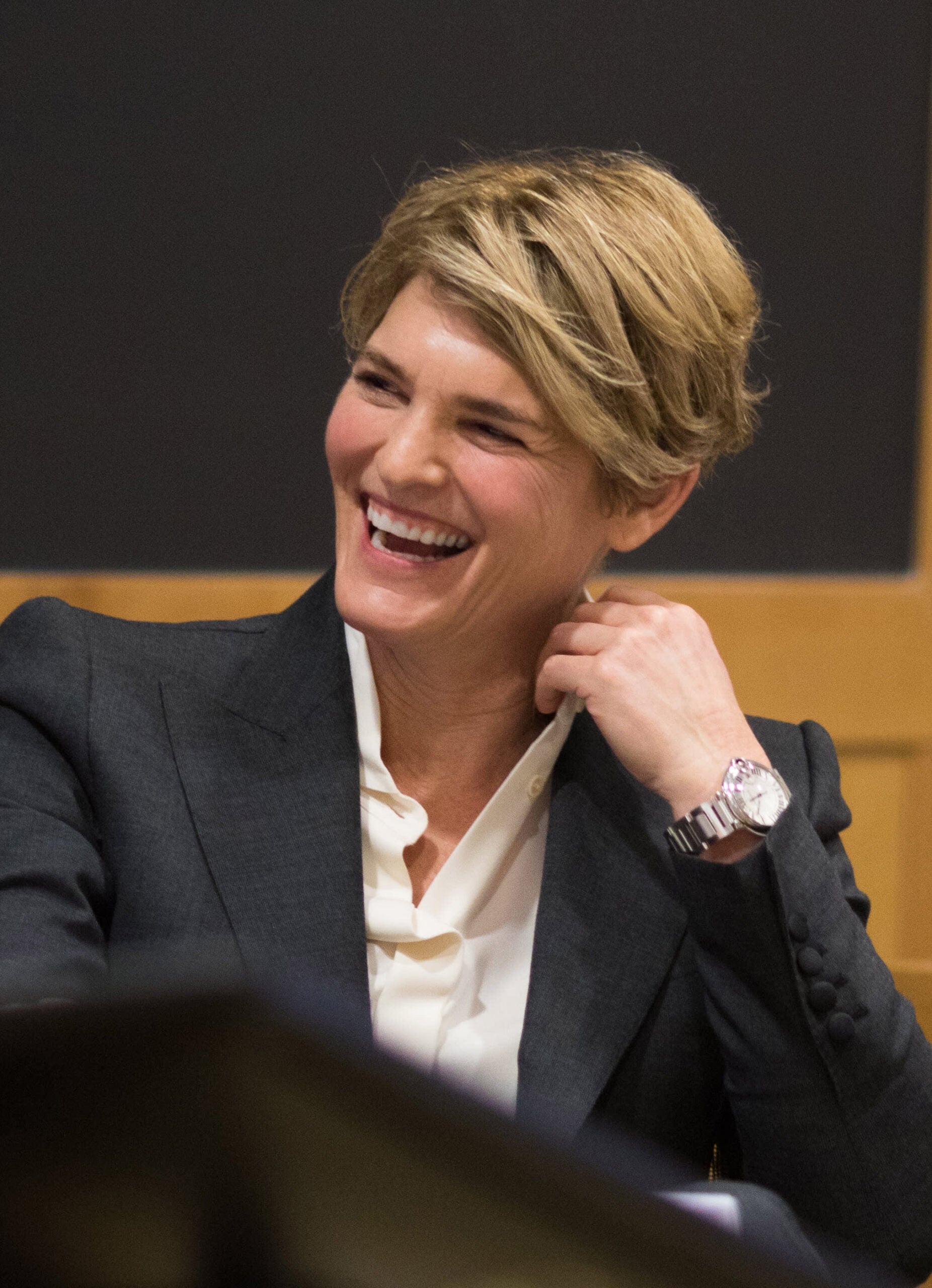The American Academy of Arts and Sciences announced today that Jody Freeman LL.M. ’91 S.J.D. ’95, Archibald Cox Professor of Law and the founding director of Harvard Law School’s Environmental and Energy Law Program, has been elected a member of the honorary society, one of several members of the law school faculty to receive the honor in recent years.
“Through her field-changing scholarship in environmental law and administrative law, and her inspired leadership of Harvard Law School’s Environmental and Energy Law Program, Jody Freeman has reshaped the way we think about environmental law and the formulation of regulatory policy,” said Dean John F. Manning ’85. “She is a scholar and teacher of deep integrity and enormous impact.”
Freeman joins some of the world’s most accomplished leaders from academia, business, public affairs, humanities, and the arts. The 2019 class includes twelve Harvard faculty members and former First Lady Michelle Obama ’88.
The American Academy of Arts and Sciences, based in Cambridge, Mass., is one of the nation’s most prestigious honorary societies and a leading center for independent policy research. The academy was founded in 1780 by John Adams, James Bowdoin, and others who believed the new republic should honor exceptionally accomplished individuals and engage them in advancing the public good.
“While the work of this class includes work never imagined in 1780 – such as cultural studies, cybersecurity, disease ecology, nanotechnology, paleoclimatology, and superconductivity – these members embody the founders’ vision of cultivating knowledge that advances, in their words, a ‘free, virtuous, and independent people,’” said Nancy C. Andrews, the Chair of the Board of the American Academy.
A leading scholar of both administrative law and environmental law, Freeman has written extensively on federal agency regulation, climate change, energy and environmental policy, and executive authority.
Freeman served as counselor for Energy and Climate Change during the Obama Administration, where she was the architect of the president’s historic agreement with the auto industry to double fuel efficiency standards, which launched the administration’s greenhouse gas program under the Clean Air Act. She contributed to a variety of policy initiatives on energy and climate issues, including renewable energy, energy efficiency, greenhouse gas regulation, and the pursuit of comprehensive energy and climate legislation that would put a market-based cap on carbon emissions.
After leaving the administration, Freeman served as an independent consultant to the President’s bipartisan Commission on the BP Deepwater Horizon Oil Spill. She was actively involved in defending the EPA’s landmark Clean Power Plan (the Obama-era standards to limit greenhouse gas emissions from the nation’s fleet of power plants.
“This is a wonderful, deserved recognition of Jody’s enormous contributions to environmental law scholarship,” added Richard Lazarus ’79, the Howard J. and Katherine W. Aibel Professor of Law, who served as the executive director of the President’s Commission responsible for investigating the root causes of the 2010 oil spill in the Gulf of Mexico.
Freeman’s book, “Global Climate Change and U.S. Law” (co-edited with Michael Gerrard) was published in 2015. Among her recent work: her remarks at a special 2017 Department of Justice plenary on the Future of Environmental Law, (published in the Environmental Law Reporter) and her article, The Uncomfortable Convergence of Energy and Environmental Law (published in the Harvard Environmental Law Review). She is widely published in leading American law reviews, and was recently recognized as one of the most-cited academics in public law across the nation.
She has published several prominent critiques of the Trump administration’s proposals to roll back environmental protections, including the landmark vehicle standards and the Clean Power Plan.
Freeman has also served as a member of the Administrative Conference of the United States, the government think tank for improving the administrative and regulatory process, and in 2011 was elected to the American College of Environmental Lawyers. She is an independent director of ConocoPhillips, where she serves on the executive and director’s affairs committees, and chairs the public policy committee. In 2018, she was appointed to the Advisory Council of the Electric Power Research Institute, which advises EPRI on trends in political, economic and social issues that affect electric utilities to help guide its research and serve the public interest.
In addition to Freeman, 11 Harvard faculty are among the more than 200 individuals elected to the American Academy of Arts and Sciences. The Harvard inductees are Joyce E. Chaplin, Peter A. Hall, Mark D. Jordan, Barbara B. Kahn, Ronald C. Kessler, Danesh Moazed, Carol J. Oja, Subir Sachdev, Daniel P. Schrag, Tommie Shelby, and Jeremy M. Wolfe.
The 239th class of new members will be inducted at a October 2019 ceremony, in Cambridge, Massachusetts.
Other members of the HLS faculty who have been selected as fellows in previous years, include: Lucian Bebchuk LL.M. ’80 S.J.D. ’84, Victor Brudney, Robert Clark ’72, Richard Fallon, Noah Feldman, Roger Fisher LL.B. ’48, Charles Fried, Mary Ann Glendon, Jack Goldsmith, Annette Gordon-Reed ’84, Charles Haar LL.B. ’48, Morton Horwitz LL.B. ’67, Vicki Jackson, Elena Kagan ’86, Benjamin Kaplan, Louis Kaplow ’81, Duncan Kennedy, Randall Kennedy, Michael Klarman, John F. Manning ’85, Daniel Meltzer ’75, Frank Michelman LL.B. ’60, Martha Minow, Robert Mnookin LL.B. ’68, Gerald L. Neuman ’80, Mark Roe ’75, Steven Shavell, William Stuntz , Cass Sunstein ’78, Laurence Tribe ’66, Mark Tushnet, Roberto Mangabeira Unger LL.M. ’70 S.J.D. ’76, Adrian Vermeule ’93, Elizabeth Warren, David Wilkins ’80 and Jonathan Zittrain ’95.
For the complete list of the 239th class of new members, visit the website.
